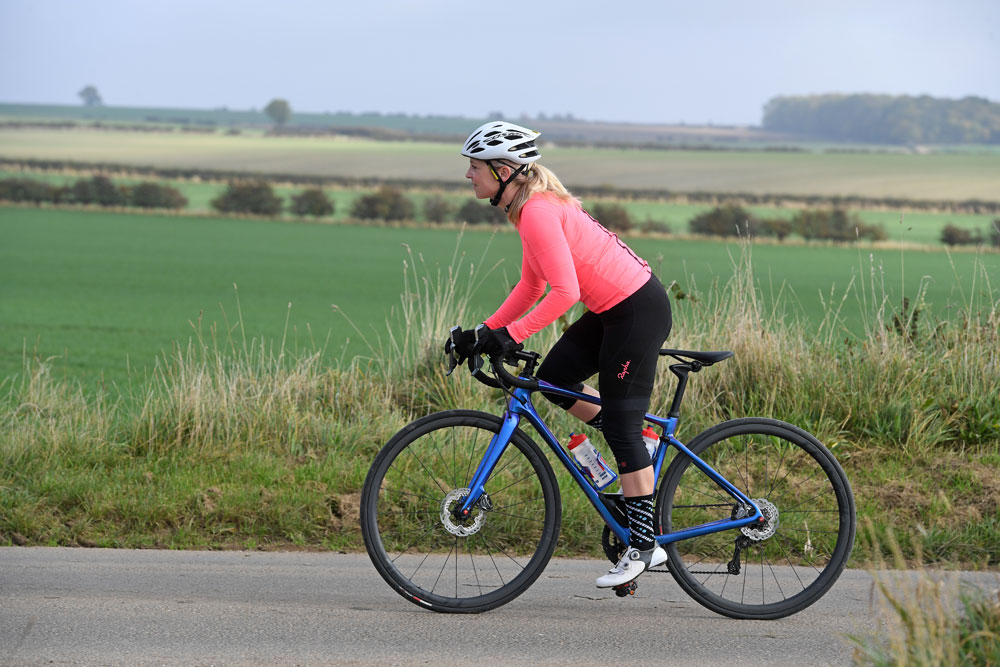
In our 'Will It Work?' series, Sports Science expert Hannah Reynolds investigates common fitness hacks, to determine if they're really any good for the time crunched athlete.
Intermittent fasting (IF) is an eating pattern where individuals cycle between periods of eating and fasting. Unlike traditional dieting which focuses on what to eat, IF focuses on when to eat.
Common methods of IF include the 16:8 method (16-hour fast with an 8-hour eating window), the 5:2 approach (eating normally for 5 days and limiting calories to 500-600 on 2 non-consecutive days), and the eat-stop-eat method (24-hour fasts once or twice a week).
People choose intermittent fasting for various reasons. Weight loss is a primary motivation as fasting can help reduce calorie intake and improve metabolic health. Supporters of IF say that limiting eating periods may aid in reducing insulin levels, promoting fat burning and supporting weight management. Additionally, some find IF easier to stick to than other calorie-restricted diets as it doesn’t necessarily restrict what can be eaten, only when.
Aside from weight loss, IF has also been linked to health benefits like improved heart health, enhanced brain function, and increased longevity. Preliminary research has suggested that intermittent fasting can reduce inflammation, improve cholesterol levels, and enhance the body's ability to manage blood sugar. While more studies are needed, the potential health benefits combined with the simplicity of the approach make IF an attractive option for many.
Expert opinions on intermittent fasting

Research from as early as 2009 in the Journal of Strength and Conditioning showed some interesting results; overnight fasting and calorie restriction improved cyclists power to weight ratio without compromising their endurance performance. Their body composition improved significantly, and their overall weight, fat weight, and body fat percentage decreased while lean mass was maintained.
More recently, 2020 research published in the Journal of the International Society of Sports Nutrition revealed that an 8-hour feeding window elicits weight loss, improves body composition and increases peak power output and body weight in elite cyclists.
Time restricted eating could also be beneficial for reducing inflammation and may have a protective effect on some components of the immune system. Researchers concluded that time restricted eating could be considered as a useful component of a periodised nutrition plan in endurance athletes.
However, a few things should be noted; the test period was only four weeks and the athletes ate 100% of their daily energy needs in an eight hour time window from 10:00am to 6:00 pm, under the supervision of a team dietitian. The athletes didn’t eat less, they just ate within a restricted time window. Furthermore, the study was conducted during the winter pre-competition season so most of the training consisted of long rides at a steady state mild to medium pace and all the training took place within the feeding time window 10am-6pm so was not done in a fasted state.
Whilst IF has many supporters, it's an approach that comes with words of caution.
Renee McGregor, a sports dietitian specialising in eating disorders says that intermittent fasting is not a practice that she would ever recommend for anyone trying to improve their performance, “Be careful in how you interpret the research,” she warns, “there are no performance benefits to doing intermittent fasting. A lot of the studies are done on a particular outcome, for example weight loss, rather than a long-term effect on performance.”
Fasting may prompt unhealthy eating patterns “we know that if you don’t fuel well in the morning when you are training, your glycaemic control later on in the day is affected,” simply put if you fast early on in the day you are more likely to make poor food choices or even binge eat at other times, “the human body is biologically biased to always achieve energy balance, If you are doing a lot of exercise you are going to be hungry.” One of the many concerns with intermittent fasting particularly over longer periods of time, is the effect on hormone balance, “we know that if oestrogen for example goes too low especially for women, it can have serious negative effects on the cardiovascular system. You may reach a point where your cardio training is no longer having a positive effect on performance.”
Intermittent fasting can lead to disordered eating, an area that McGregor specialises in “obsessive behaviour can lead to problematic outcomes,” she cautions. McGregor is reluctant to encourage any athlete to try intermittent fasting “we have to be careful that it isn’t setting you up to fall into bad habits. Developing lower metabolic efficiency or eating to excess when you do allow yourself to eat. Potentially you can set yourself up to fail, that is why I am particularly cautious about it and I would never suggest it. However, there are some situations where it might be acceptable.” As with the research mentioned above she suggests that IF should be done carefully with some supervision and that your training is done fuelled, “if you are going to go down this road I would shift everything so you are not training in a fasted state. Ensure that you have some sort of monitoring to check that your hormone levels are working and remain very mindful of how your performance is going.”
Pros of intermittent fasting
- Improved Fat Adaptation: Some research suggests IF may help cyclists become more efficient at burning fat for fuel, which can be particularly useful for endurance events
- Weight Management: IF can be an effective way to reduce body fat, potentially improving power-to-weight ratio—a critical factor in cycling performance – as long as you manage your nutrient intake around fasting periods
- Metabolic Health: IF has been shown to improve insulin sensitivity and blood sugar control, which can be beneficial for overall metabolic health and energy regulation during rides.
- Simplified Meal Planning: IF requires will power during fasts and good nutrition the rest of the time meaning no counting calories, weighing portions or becoming fixated on food
Cons of intermittent fasting
- Energy Levels: Fasting periods might lead to low energy levels, which can negatively affect performance and recovery
- Nutrient Intake: Restricting eating windows could make it challenging to consume all the necessary nutrients and calories needed for optimal performance and recovery
- Muscle Loss: There’s a risk of muscle breakdown if calorie intake is too low, especially during prolonged fasts or if nutrition isn't carefully managed
- Gastrointestinal Issues: Eating larger meals in a shorter time frame can lead to gastrointestinal discomfort, which can be particularly problematic before or during rides
I tried it...

Having read up on the reported benefits, and received a warning to be cautious from McGregor, I tentatively experimented with IF.
I started with a simple 16:8 – eating 8 hours a day and nothing the rest of the time as per the second piece of research above. This model was really easy, breakfast at 10.30am and dinner at 6.30pm. Just restricting eating hours in this way immediately removed the option of cheese and biscuits late at night or having a mid-morning coffee and croissant. That alone was enough to make a noticeable difference! But that could have been achieved anyway without calling it ‘fasting’.
The next level is to have two fast days with just 500 calories on those days, and this was considerably harder. Herbal teas, water and lots of salad helped the process. The most noticeable thing is that the day after fasting I felt lighter, healthier and made better food choices, there was no compensatory binge. However, it remains to be seen if I'd continue to see benefits over a longer period.
Overall, I think this method would work for me as long as I don’t become too fixated and am prepared to put good nutrition before fasting on the days when exercise demands it.
The bottom line on intermittent fasting
Intermittent fasting is a tool to handle with caution. It can suit some people very well but others will find it makes them much less able to train effectively so their performance and more crucially well-being will suffer.
Time restricted eating, consuming all the nutrients and energy you need in an 8-hour window that includes your training and immediate recovery time, may be a healthier way to think about this method by removing the emphasis on ‘fasting’. It is essential to time eating windows around training sessions to ensure sufficient energy and nutrients for both performance and recovery. Shorter fasting periods are easy to achieve and may reduce unhealthy habits like late night snacking, while conversely training fasted or longer fasts could lead to binge eating or at the very least bad food choices which will be over all detrimental to your progression.
If you are tempted to try intermittent fasting focus on the why - if it is to improve your performance as a cyclist question if this method will allow you to achieve that.







